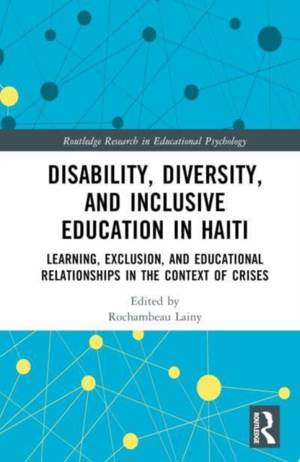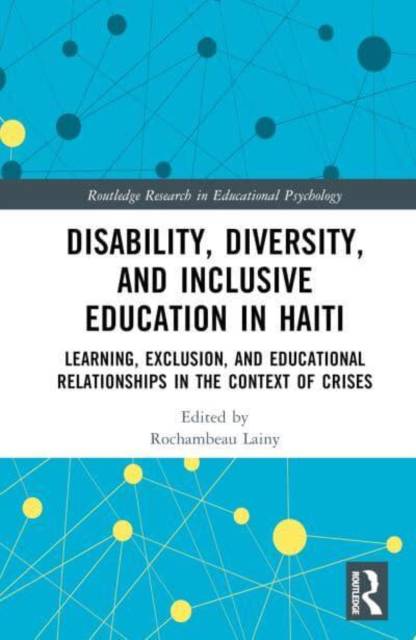
- Retrait gratuit dans votre magasin Club
- 7.000.000 titres dans notre catalogue
- Payer en toute sécurité
- Toujours un magasin près de chez vous
- Retrait gratuit dans votre magasin Club
- 7.000.000 titres dans notre catalogue
- Payer en toute sécurité
- Toujours un magasin près de chez vous
Disability, Diversity and Inclusive Education in Haiti
Learning, Exclusion and Educational Relationships in the Context of Crises
Description
This book examines disability, diversity, and schooling exclusion in Haiti in the wake of Hurricane Matthew. Defending a social and anthropological conception of disability as a consequence of any situation that makes a subject uncomfortable and unable to live or act properly, the book explores the difficulties that disabled children face within the school system and considers how social exclusion provokes and exacerbates educational exclusion. With contributions from linguists, educational sociologists, educational psychologists, educators, and historians, the chapters focus on a range of phenomena such as the balance of languages used for teaching, gender equity, associated disorders, and the experiences of left-handed and deaf students. Ultimately, the authors demonstrate how the educational relationships built and practiced in school influence the perceptions of people with disabilities, with respect to both singular contexts and pedagogical practices. As such, it represents an important study of the relationship between school exclusion, disability, and those with precarious socio-familial conditions, and how they can be conceptualized and addressed in the context of crises. It will appeal to scholars, researchers, and academics with interests in diversity and inclusive education, pedagogy, crisis education, and educational psychology.
Chapters 1, 3, 7, and 8 of this book are available for free in PDF format as Open Access from the individual product page at www.routledge.com. They have been made available under a Creative Commons Attribution-Non Commercial-No Derivatives 4.0 license.
Spécifications
Parties prenantes
- Editeur:
Contenu
- Nombre de pages :
- 254
- Langue:
- Anglais
- Collection :
Caractéristiques
- EAN:
- 9781032389462
- Date de parution :
- 27-12-22
- Format:
- Livre relié
- Format numérique:
- Genaaid
- Dimensions :
- 152 mm x 229 mm
- Poids :
- 438 g






